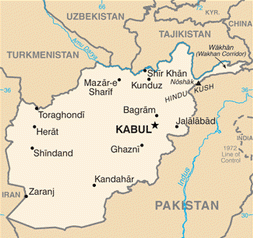Washington has relinquished control and final say over special operations night raids in Afghanistan to the Kabul government, but U.S. officials are quietly planning to ignore the agreement’s binding clauses.
 In order to agree on a security arrangement governing U.S. military presence after U.S. combat troops withdraw in 2014, Kabul has essentially forced the Obama administration to concede two vital sticking points. First, control of Afghan prisons needed to be ceded to the Kabul government, which happened in March.
In order to agree on a security arrangement governing U.S. military presence after U.S. combat troops withdraw in 2014, Kabul has essentially forced the Obama administration to concede two vital sticking points. First, control of Afghan prisons needed to be ceded to the Kabul government, which happened in March.
Second, the U.S. either needed to stop all night raids or, as a compromise, let the Afghan government be in charge of them an have veto-power over them in the case that an Afghan panel refuses to grant a warrant. An agreement on this was reached this week.
But as Pentagon spokesman Capt. John Kirby told reporters on Monday, “In practical terms, not much has changed.” He insisted, despite the official memorandum requiring U.S. forces to obtain a warrant from an Afghan panel, that President Hamid Karzai will not hold “a veto” over U.S. special operations missions conducted Afghanistan.
“It defines it fairly narrowly, and leaves open the possibility of a counterterrorism raid conducted by a CIA paramilitary group or other unit,” said Lisa Curtis, a South Asia specialist at the Heritage Foundation, a conservative Washington think tank. “That’s not to say those operations will occur regularly … but it stands to reason that if the United States had a very high-value target in its sights, it would pursue that target as it needed to.”
While U.S. officials won’t say it explicitly, mindful of the delicate diplomatic process, the agreement will be largely ignored. “If there’s a threat to the homeland, the United States always reserves the ability to act unilaterally,” said Rick “Ozzie” Nelson, senior fellow at the Center for Strategic and International Studies. “The rhetoric may not line up with that, however, because we have the need for an agreement with the Afghan government beyond 2014,” when U.S. combat forces are scheduled to leave.
Of course, what qualifies as a “threat to the homeland” is up to the administration, Joint Special Operations Command and the CIA, who typically have carried out the night raids. Night raids are one of the most hated aspects of the U.S. occupation in Afghanistan, infamously fueling resentment and often ending with the killing or arrest of innocents.
With night raids, the Obama administration has attempted to ease the pain, at least the public relations aspect of it, by training loyal Afghan forces to participate in them with U.S. forces in the hopes that it will help reduce civilian casualties. That this sort of reform was needed, speaks for itself.
The U.S. plan to completely ignore a binding agreement with the government of Afghanistan is characteristic of this administration’s approach to issues in foreign policy: rule of law be damned.


